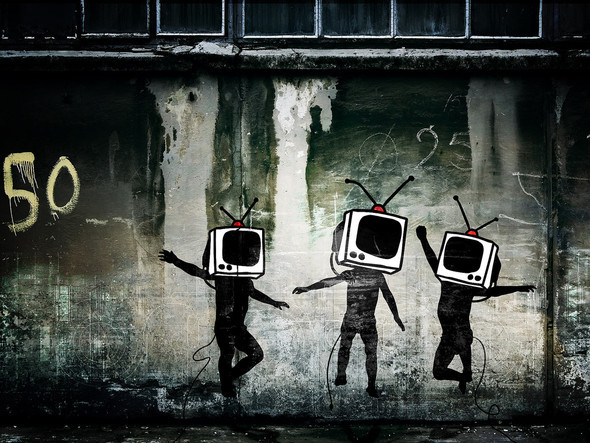Last summer, I decided to take a gig recapping episodes of a reality TV series so loathsome I can barely bring myself to write its title here. (I would be lying if I said there weren’t aspects of Bachelor in Paradise that I enjoyed. Or, at the very least, moments I was ashamed to find that my note-taking was derailed by what pains me to describe as actual investment.) But what ultimately puzzled me more than the issue of why I was watching — and even enjoying — the show was the fact that I was writing about it in the first place. And furthermore, I wondered, why were people reading them?
In an age where we can use the Internet to quickly access an episode we may have missed, what purpose does the recap serve? There was a time when perhaps they were necessary: I remember my mother reading aloud the TV Guide recap of a favorite show the morning after we’d returned from a vacation and missed it. But as John Jurgensen notes in The Wall Street Journal, the number of news outlets and blogs offering recaps have exploded as of late, serving both as a more nuanced barometer than Nielsen ratings and a means for mass traffic to the sites that host them.
I was surprised to find that anyone would read my recaps, but the relatively small blog I was writing them for spiked in visitors each time a recap of mine surfaced. At first, it felt a little shameful that my most viewed pieces of writing were pun-riddled accounts of a bunch of drunk twenty-somethings stuck in a house, cobbled together in the wee hours of the morning. But, recapping became almost addictive: the high of seeing the page-views surge, the total shock of seeing my recaps rank up among those from Vulture and Entertainment Weekly in Google’s search results. Not to mention the bender-like evenings set aside to produce them: the fact was that with access to the episode being almost instantaneous, the recap had to be as well.
With that in mind, it is perhaps a little shocking to reveal that many of the people who read my recaps of Bachelor in Paradise did not watch the show at all. A friend from college admitted that she wasn’t even sure which channel it was on. So if people weren’t watching these shows, why did they want to read about them? How didn’t this fall into the same category of boring as hearing about a friend’s inside joke with a different friend group or having someone recount their dream in excruciating detail?
One of the amazing things the Internet has given us — oft overlooked in the shadow of its false promise of anonymity — is vicariousness. By this I mean we have been granted unprecedented opportunities to experience things via other people. I watched a girl put a particular brand of hair dye in her hair on YouTube before deciding to use it to dye a lock of my own purple. A friend of mine who never wears makeup watches videos of people applying elaborate makeup simply because it relaxes her. If you Google “why watch people play video games on the Internet,” you’re bombarded with a thousand think-pieces penned by people defending their own habits or explaining why it’s okay for other people to.
Our desire to watch others is only partially a living testimonial or a cautionary tale. It would be easy to dismiss the desire for vicariousness as a way to avoid making mistakes ourselves, but so many of our interactions and behaviors negate this. Often, we watch other people doing things on the Internet without any intention of repeating the behaviors ourselves, even if we are capable of duplicating it ourselves.
In his article “How Roland Barthes Gave Us the TV Recap,” Sam Anderson writes that “a cultural critic is betwixt and between: not a regular consumer of culture and yet someone immersed deeply enough in it to appreciate its inner mechanisms.” I feel strange saying that my recaps of a show like Bachelor in Paradise are a significant piece of cultural criticism or that they make me a cultural critic. (Though, certainly, some gorgeous writing came out of recaps of the final episode of Mad Men that wove together the end of the show for its viewers.) But I believe that the position I occupied, the sort of liminal space that an anthropologist would call a key informant, enabled me to situate Bachelor in Paradise within a context where individuals would actually enjoy it.
I want to imagine that recaps are less about what happened and more about why, or even how to process it. Or, perhaps, it’s a reprieve from having to suffer through all the show’s drivel — the people on Bachelor in Paradise spend a mind-dulling amount of each episode just sitting around the house and day-drinking — for the nuggets of actual entertainment. Maybe it’s the schadenfreude of reading another person slog through these episodes.
But I don’t want to believe that laziness or sadism drive people to read recaps of shows they have not — and do not plan to — watch. I think there’s a new sort of entertainment being born out of discussing entertainment itself, through the vicarious experience of seeing the way others understand and respond to media, and I’m fascinated to see how it develops further.
Image: “21st Century Digital Boys,” by Alex Cherry. 2006.




